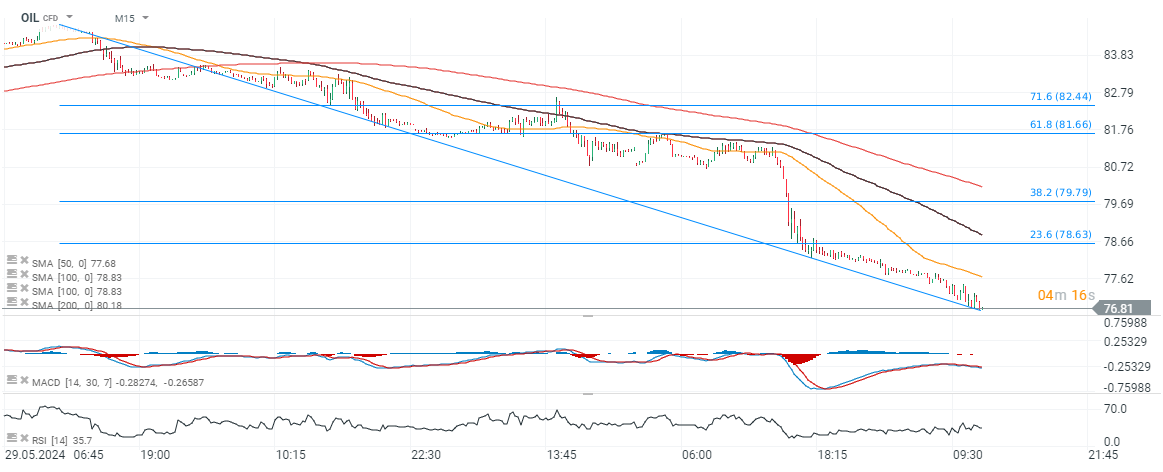After yesterday's decision by OPEC+ to pull back from voluntary production cuts, the structure of the oil market may suggest more pressure in the months ahead. The declines did not stop at $78 and today Brent Crude oil contracts are testing the area below $77 per barrel. Some analysts expect weaker macroeconomic data in 2025, and lower demand with improved supply, could further weigh on 'black gold' prices. Of course, lower oil prices are positive for the stock market and, along with weaker data from the US (yesterday's weak manufacturing ISM), certainly add to the slightly more 'dovish' picture at the Fed recently. Interestingly, however, today the dollar index contracts are gaining more than 0.2%
- Eight OPEC+ members have announced that they will begin phasing out 2.2 million barrels per day of production cuts starting in October. As a result, more than 500,000 barrels a day will return to the market by December and 1.8 million a day by next June.
- Some forecasts had assumed that Russia and Saudi Arabia would maintain a somewhat firmer tone, and the producers' decision clearly seems to suggest weaker demand and an uncertain outlook for the future. Analysts at Lipow Oil Associates agreed with Mizuho's analysis, and pointed out that the decision will limit increases and thus this year's 'geopolitical premium' on oil
- Lipov estimates that in the absence of cuts of 6 million barrels per day (ongoing from 2022), oil prices would currently be around $50 per barrel. Mizuho estimated that only a total war in the Persian Gulf could push oil prices back to around $100 per barrel this year. OPEC+ must, of course, calculate not to overdo it with cuts and price increases that would lower demand. Still, the current situation may be a kind of 'test'
- It is worth noting, however, that future OPEC+ decisions will remain dependent on incoming data and, as the producer cartel has pointed out, are subject to change. Currently, however, the group maintains separate programs of cuts totalling 3.6 million barrels / day, until the end of 2025. The market perceives this as a signal of weakness, especially in fall and winter contracts, which may face little buyer activity in the face of forecasts of rising supply
Also, geopolitics may favour bears in the short term as Qatar Foreign Ministry informed has received an Israeli proposal, with reflected positions stated by Biden and mediators, who delivered the paper to Hamas said that, now the deal with Israel is much closer to achieve.
Oil price chart (OIL, M15)
![]()
Source: xStation5

Daily summary: Silver plunges 9% 🚨Indices, crypto and precious metals under pressure

🚨Gold slumps 3% amid markets preparing for Chinese Lunar Year pause

Cocoa falls 2.5% to the lowest level since October 2023 📉

NATGAS muted amid EIA inventories change report



